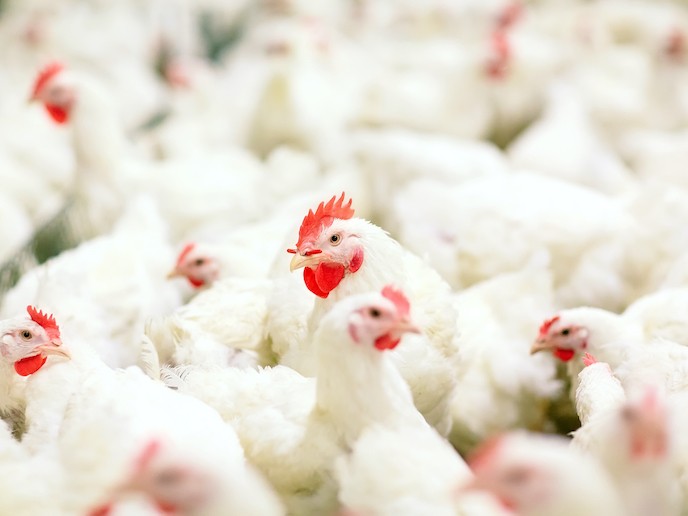Converting poultry feathers from discarded waste into valuable raw materials
The poultry industry is responsible for a substantial amount of waste. For example, the EU alone generates 3.1 million tons of feather waste every year. This by-product is typically either converted into low-nutritional value animal feed or incinerated. Not only are these options unsustainable, they also miss an opportunity to contribute to the circular economy. “Although the conversion and use of feathers as a raw material in industrial applications remains extremely limited, the potential is there,” says Sarah Montes, a researcher at CIDETEC. “Using the right methods, this waste could be used in a range of raw materials, including hydrolysed keratin, bioplastics, flame-retardant coatings, spun-bonded non-wovens, and thermoset bio-based resins.” To unlock this potential, the EU-funded KARMA2020 project, coordinated by CIDETEC, developed the methods and strategies needed to convert poultry feathers from discarded waste into valuable raw materials.
On par performance
The project set out to develop efficient conversion technologies for feather processing that will enable the large-scale manufacturing of feather-based raw materials. This included improving the pre-treatment and conditioning processes and optimising the isolation of keratin and other feather-based raw materials. The project also validated the use of these raw materials in the manufacturing of bio-based end products. “Once we were able to obtain raw materials from feathers, we could compare their performance against fossil-based alternatives,” explains Montes. “What we found is the performance of feather-based raw materials is on par with these other materials and, in some applications, they even perform better.” One challenge that the project faced at the very beginning involved how to best sanitise feathers. Researchers found that some of the cleaning methods used to sterilise feathers were not effective. In such cases, microorganisms were able to resist the sanitised conditions. Even though these microorganisms were not pathogenic, they did impact the effectiveness of some of the technologies used in the project, such as the enzymatic treatment of feathers. This meant the research team had to develop specific sanitation protocols.
An essential component to the circular economy
The valorisation of feather waste, together with the technological breakthroughs achieved during the KARMA2020 project, guarantee significant benefits to both the environment and the economy. “The project has clearly demonstrated that feathers can no longer be viewed as a waste product,” adds Montes. “Instead, they should be seen as a source of valuable raw materials and an essential component to the circular economy.” Although the project is now officially finished, the KARMA2020 team of industrial and academic experts remains active. Currently, they are focused on further developing the technologies and securing the necessary investments to bring the solution to market.
Keywords
KARMA2020, circular economy, poultry, feathers, feather-based raw materials, poultry industry, CIDETEC



